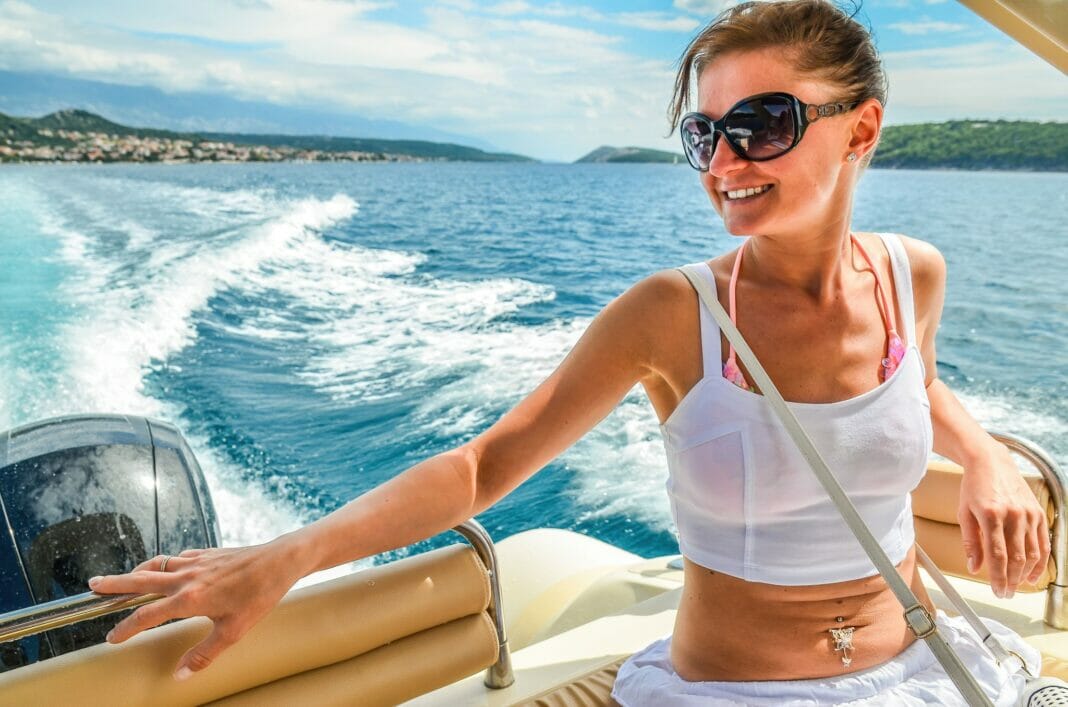From fishing trips on a quiet lake, to sailing adventures in the open ocean, it’s important to have the necessary gear to keep you safe and comfortable while you’re out on the water. One critical aspect that can often be overlooked is eye protection. Water can expose your eyes to dangerous glare, blinding brightness, and harmful UV rays. Choosing the proper sunglasses for boating is essential in order to maintain good eye health and enjoy your time on the water.
The Importance of Eye Protection
1. Protection from UV Rays
Prolonged exposure to ultraviolet (UV) radiation can cause significant harm to your eyes, leading to conditions like cataracts, macular degeneration, and even skin cancer on the eyelids. It’s important to shield your eyes from the sun’s harmful rays, especially when participating in outdoor activities like boating.
2. Reduced Glare
Glare is a common issue that boaters face when they’re out on the water. The sunlight reflecting off the surface can cause discomfort, reduced visibility, and even temporary blindness. Wearing polarized sunglasses can help lessen the impact of glare and improve vision and overall comfort while out on the water.
3. Prevention of Eye Strain
Squinting against the sun for extended periods of time can cause eye strain, which can lead to headaches, fatigue, and irritation. Sunglasses that adequately block out harmful UV rays and reduce glare can help prevent this issue and keep your eyes feeling fresh and relaxed.
What to Look for in Boating Sunglasses
1. Polarization
Polarized lenses are specifically designed to reduce glare from reflected surfaces like water. They do this by only allowing vertically-aligned light to enter your eyes, blocking out the horizontally-aligned light that causes glare. When shopping for sunglasses for boating, look for lenses that are polarized to provide the best possible protection against glare.
2. UV Protection
Make sure the sunglasses you choose offer 100% UV protection (UV400). This will ensure that your eyes are safeguarded from the damaging effects of UVA and UVB rays. When shopping, look for products specifically labeled as offering complete UV protection.
3. Lens Material
Boating sunglasses come with lenses made of various materials, including glass, plastic, and polycarbonate. Each has its own benefits and drawbacks. Glass lenses offer excellent clarity and durability but can be heavy and prone to shattering. Plastic lenses are more lightweight and affordable but can scratch easily. Polycarbonate lenses are the best choice for boating sunglasses as they’re tough, lightweight, and offer excellent clarity.
4. Frame Material and Design
Choose a frame material that is lightweight, durable, and comfortable to wear for extended periods of time. Popular materials include nylon, acetate, and metal. For boating purposes, wraparound styles are recommended as they provide maximum coverage and can help keep the sun out of your peripheral vision.
5. Lens Color and Tint
Different lens colors are suited for specific lighting conditions and activities. For boating, the best lens colors are gray, amber, or copper as they enhance contrast without distorting colors. Avoid dark tints that can make it hard to see while navigating on the water.
Investing in a high-quality pair of sunglasses specifically designed for boating can greatly enhance your comfort and overall experience on the water. Remember to prioritize polarization, UV protection, lens material, frame design, and lens color to ensure you’re choosing the perfect pair of shades to shield your eyes from the sun’s harmful rays and reduce glare on the water. Happy boating!


